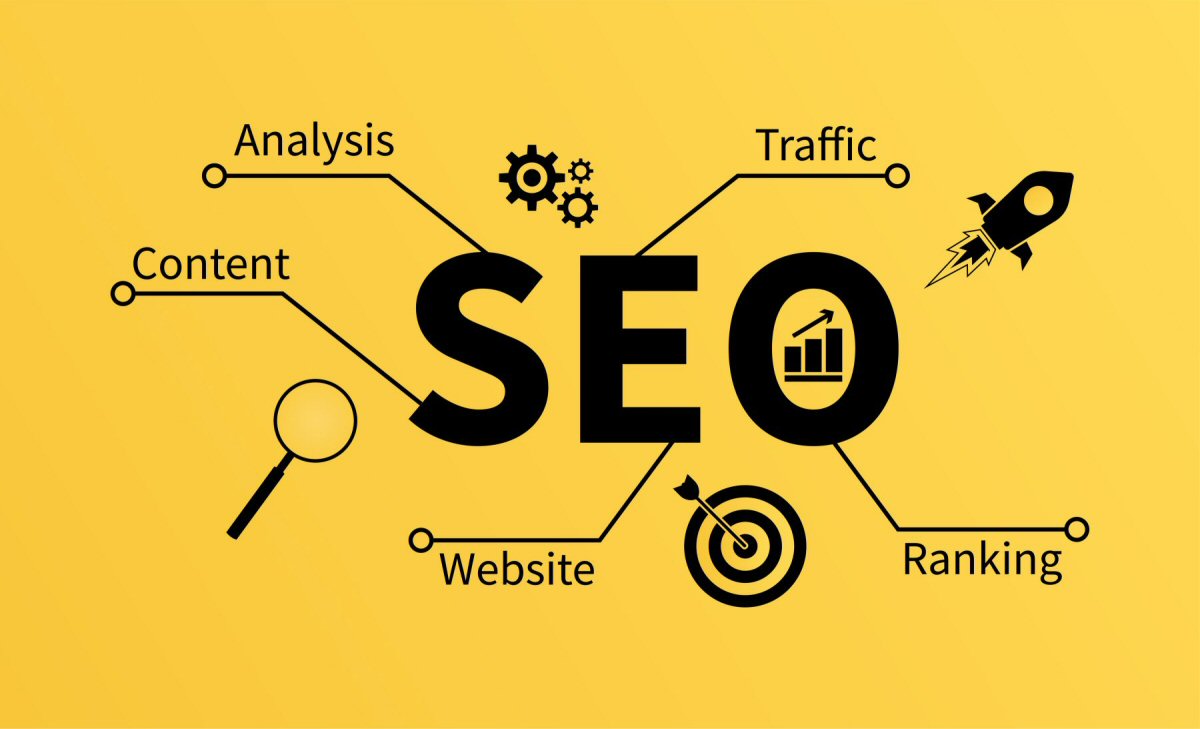SEO stands for search engine optimization. SEO means enhancing your website’s performance and ranking it well in search engine results. We do it to boost your site’s online visibility and generate organic traffic. SEO, or search engine optimization, means making your website optimized in a way that it ranks well in search engine outcomes. SEO ranks a website higher when various elements, such as the site’s content, key words, and site’s structure, are well optimized. It helps to generate more traffic and enhance the website’s visibility.
What is the purpose of SEO?
SEO is important for any business because it may enhance the visibility of the website in search engine results, improve user-experience, and build credibility and trust among customers. Whether you run a local business or a large multinational organization, using efficient SEO techniques can have a major impact on your success in the long run and your online visibility.The main goal of SEO involves:
- Improved user-experience
- Increased targeted traffic.
- High search engine rankings
- Better insights and analytics
- Cost-effective marketing
- Build credibility and trust
How do search engines work?
It is very important to know how search engines work. Search engines like Google use complex strategies and algorithms to improve your website’s ranking. An overview of this process is as follows:
Crawling: Search engines browse the web through automated bots, sometimes referred to as spiders or crawlers. These bots browse web pages, click on links, and collect data on every website they come across.
Indexing: An index is a large database that contains the data from pages that have been crawled. Information on the page’s keywords, content, and other relevant elements can be found in this index.
Ranking: When a user searches, the search engine pulls up pertinent sites from its index and assigns them a quality and relevancy rating. The SERPs show the outcome, with the most relevant pages showing up at the top.
Key components of SEO
There are three key components of SEO that improve a website’s search engine rankings. It includes on-page SEO, off-page SEO and technical SEO.
On-page SEO
It involves optimization of individual web pages to increase search engine ranking and engage more users.
Keyword research
Include keywords that are more relevant and appropriate. It also involves identifying keywords that are relevant to your business and boosts your organic traffic.
Meta-tags
These are HTML elements that provide information about your page to search engines. The most important meta tags are the title tag and meta description, which should include targeted keywords and encourage users to click.
Content quality
Create high-quality, well-developed, and engaging content. It should be according to the user’s intent. All the content should be well-developed, valuable, and informative and provide solutions to user’s queries.
Headings
Your content should include headings. Proper formatting of your content makes it easier for users and search engines to identify its topics and sub-topics. This enhances overall visibility and helps in user-engagement.
URL Structure
Creating SEO-friendly URLs that are concise, descriptive, and include relevant keywords. A clean URL structure helps search engines and users understand the content of the page.
Internal linking
Adding links to other pages on your website enhances navigation and helps in increasing link equity. It also aids search engines in comprehending how various pages relate to one another.
Off-page SEO

This involves factors that affect your website’s rankings but are considered outside the website.
Backlinks
Build high-quality backlinks to increase the site’s validity and authority. These links are actually from other websites but signal your site. This shows the trustworthiness and credibility of your site.
Social signals
Social media engagement might have an indirect effect on your SEO. Even though social signals by themselves might not have a direct impact on rankings, social media traffic and visibility can increase the authority and relevancy of your website.
Online reputation
Reviews and mentions help in building your site’s credibility. It also builds the site’s trust and authority. Positive reviews and mentions across your website can help in building the site’s validity and authority.
Technical SEO
Technical SEO helps in improving technical aspects of your website and also helps in boosting your site’s performance.
Site speed
Your site loading speed should be faster. It enhances user-engagement and also boosts SEO performance. Slow loading speed will result in lower rankings in search engine outcomes and higher bounce rates.
Mobile responsiveness
Your site must be responsive on all devices. Google uses mobile-first indexing, meaning it primarily looks at the mobile version of your site for ranking. Mobile friendly sites also ensure increased user-engagement and improved rankings in search engine results.
XML sitemap
An XML sitemap enables all page navigation and helps search engines understand the structure of your website. It’s a file that lists all your important URLs.
How do you measure the effectiveness of your SEO?
You can measure the effectiveness of your SEO by evaluating the following factors:
- Organic traffic
Keyword rankings
Backlink profile
Conversion rates
What is an SEO strategy?
An SEO strategy focuses on maximising the search engine ranking of your content. SEO strategy goal is to boost organic traffic and attract targeted audience. You can maintain consistency with your content by using an SEO strategy. By creating high-quality content based on user purpose and performance, you will increase your site’s rankings.
Why is SEO considered a successful strategy?
It improves a website’s visibility in search engine results, making it easier for customers to find it. That’s why it is considered the best strategy. It boosts credibility and trust and also offers long-term benefits such as higher search rankings.
Conclusion
SEO optimization is the best way to improve your site’ online presence. It helps in higher rankings of your website. By considering on-page, off-page, and technical SEO, you can engage more users and increase your site’s visibility in search engine results. Understanding how SEO works and implementing appropriate and relevant techniques, will help you reach your online needs and goals.


